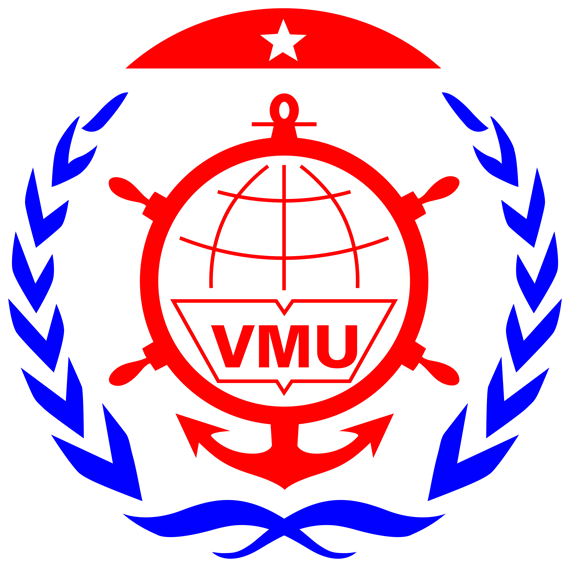1. Introduction
|
Program title: |
Bachelor of Advanced Industrial Automation Engineering |
|
Graduation degree: |
Bachelor's degree |
|
Study model: |
Full-time |
|
Total credits: |
147 |
|
Used language: |
Vietnamese and English |
|
Training duration: |
4 years (8 semesters) |
|
Responsible Faculty: |
Faculty of Electrical - Electronics |
|
Website: |
|
|
Address: |
Room 802, 8rd floor A6 Building, Vietnam Maritime University 484 Lach Tray - Le Chan - Hai Phong. |
The Advanced Industrial Automation Engineering training program is developed by the Faculty of Electrical and Electronics Engineering, appraised and issued by Vietnam Maritime University. The program references curricula from prestigious universities specializing in industrial automation. It is periodically reviewed, updated, and modified to meet the practical needs of graduates, as well as to fully comply with the regulations of the Ministry of Education & Training and Vietnam Maritime University. Students participating in the program are not only trained in knowledge but also in skills and attitudes that meet the Vietnam National Qualifications Framework and other international requirements for the workforce in the 21st century.
The program is designed to align with the educational philosophy of Vietnam Maritime University: 'Intelligence - Creativity - Responsibility - Humanity.' With the program's mission to train high-quality human resources to serve the marine economic development strategy and the cause of national construction and defense, as well as international integration in general, and for the coastal industry in particular.
The program aims to train bachelors in Advanced Industrial Automation Engineering. Graduates of this program are capable of designing, implementing, and operating industrial control and automation systems. They are dynamic, creative, highly adaptable to any work environment, and capable of competing with human resources in the Asia-Pacific region, serving the development of the marine economy and the cause of national construction, defense, and international integration.
Graduates of the Advanced Industrial Automation Engineering program can work at: Factories, enterprises, and companies with automated production lines in various fields such as industry, agriculture, healthcare, telecommunications, energy, mineral extraction and processing, and shipbuilding. Import and export of technical materials; Strategic planning for automation projects. Foreign Direct Investment (FDI) enterprises; Technical consulting firms, businesses trading in electrical and automation equipment, or technology transfer; Technical service trading companies for control and automation. Domestic and international companies specializing in control and automation, such as: Design, analysis, operation, and technical maintenance of modern industrial production lines, including automotive assembly, aviation automation, power plants, food processing plants, construction material production, paper manufacturing, etc. Research and development institutes and centers in the fields of Electrical, Electronics, and Automation. Universities, academies, and colleges with automation programs.
2. Curriculum
The Advanced Industrial Automation Engineering Bachelor's program is organized into 8 semesters:
- Semester 1: Students acquire foundational knowledge and skills through basic courses such as Calculus, Linear Algebra, and Physics; gain an understanding of law; and develop an understanding of the Control and Automation Engineering industry, as well as the Industrial Automation Engineering major.
- Semester 2: Students continue to accumulate foundational knowledge for in-depth specialization in subsequent semesters. They also begin to accumulate basic knowledge in Control and Automation Engineering.
- In the first year, students accumulate advanced foreign language proficiency to communicate fluently, meeting the requirements of specialized courses taught in English in later semesters.
- Semester 3: Students continue to accumulate and enhance basic industry knowledge for the Industrial Automation Engineering major. Programming skills and specialized foreign language skills are also accumulated in this semester.
- Semester 4: Provides in-depth knowledge and skills in Control and Automation Engineering through courses such as Power Electronics; Fundamentals of Electrical Drives; Industrial Measurement Techniques; and Microcontroller Techniques.
- Semester 5: Provides foundational knowledge and skills in the Industrial Electrical Automation major through courses such as Process Control, Hydraulic and Pneumatic Control Techniques; and Control Programming Techniques. Students are trained in project design skills through major assignments and projects.
- Semester 6: Provides in-depth knowledge of the Industrial Electrical Automation major. Control systems using PLC; Computational techniques for designing industrial robots; Design of power supply systems for industrial plants according to Vietnamese and international standards; Computer-based automatic system control techniques.
- Semester 7: Focuses on in-depth knowledge and advanced skills in the Industrial Electrical Automation major. Students accumulate courses such as Digital System Control Techniques; Application of Artificial Intelligence in Automation Systems; Enhancement of design capabilities through industrial machinery design projects; Analysis, design, and operation of electromechanical systems.
- Industry and specialized skills such as teamwork, presentation, design, and operation are accumulated through courses in the training program, with three internships—basic industry internship, specialized internship, and graduation internship—playing crucial roles.
- Additionally, international standards in design, operation, and maintenance are updated in the specialized internship course. This equips students with the knowledge and skills to be ready for work in an international environment.
- A wide range of elective courses are offered, covering specialized areas such as Artificial Intelligence Programming Techniques; Renewable Energy Systems; Electric Vehicle Drive Control Systems; and soft skills for post-graduation employment.
- In the final semester, students consolidate their learning through practical applications. The graduation project helps students integrate, operate, and exploit industrial automation systems.
